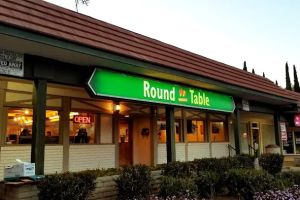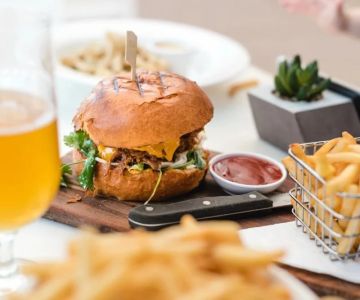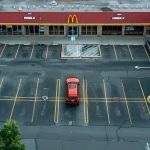
- 1. The Impact of Technology on Restaurant Hours
- 2. Automating Ordering and Payment Processes
- 3. The Role of Online Ordering and Delivery Platforms
- 4. Smart Kitchen Technologies for Efficiency
- 5. Case Studies and Success Stories
1. The Impact of Technology on Restaurant Hours
In today’s competitive foodservice industry, staying open later and serving more customers is a goal for many restaurants. With the increasing demand for convenience and 24/7 access to food, restaurants are looking for ways to extend their hours and improve their service. One of the most significant ways they’re achieving this is through the integration of advanced technology.
From automating processes to improving operational efficiency, technology is helping restaurants meet the evolving needs of customers and create a smoother dining experience. Whether it’s extending delivery hours, improving kitchen efficiency, or enhancing customer service, restaurants are finding that leveraging technology not only increases their revenue but also boosts customer satisfaction.
2. Automating Ordering and Payment Processes
One of the most transformative technologies in the restaurant industry has been the automation of ordering and payment processes. Traditional methods of taking orders and processing payments can be time-consuming and prone to human error, especially in high-volume restaurants. Automation is changing this dynamic by streamlining both ordering and payment, leading to faster service and fewer mistakes.
For instance, many restaurants now use digital kiosks or tablet-based ordering systems that allow customers to place their orders directly. These systems are not only more efficient but also provide a contactless experience, which has become especially important in the wake of the COVID-19 pandemic. Customers can quickly browse the menu, make their choices, and even pay for their meal—without waiting for a server. This results in a faster turnaround and the ability to serve more customers, especially during peak hours.
1. Benefits of Self-Ordering Kiosks
Self-ordering kiosks are proving to be a game-changer for many fast-casual and quick-service restaurants. They reduce wait times, enhance accuracy by eliminating human error, and allow for upselling opportunities. The seamless integration of these kiosks into the restaurant’s system also makes it easier to manage high traffic periods, enabling the restaurant to stay open later while maintaining quality service.
3. The Role of Online Ordering and Delivery Platforms
Another crucial factor helping restaurants stay open longer and serve more customers is the rise of online ordering and delivery platforms. With the growth of services like UberEats, DoorDash, and Grubhub, restaurants can reach customers beyond their physical location and operate later into the evening.
Many restaurants are choosing to partner with these platforms or develop their own online ordering systems to meet the demand for food delivery. These systems allow restaurants to capture more orders, increase sales during off-peak hours, and serve customers who prefer to dine at home. By integrating these services into their operations, restaurants are not only extending their reach but also ensuring they can continue serving customers well beyond traditional hours.
1. Streamlining Delivery Operations
Restaurants are also improving their delivery processes through technology. GPS tracking, real-time order updates, and optimized routing for delivery drivers ensure that food is delivered quickly and efficiently. This not only helps restaurants handle a larger volume of orders but also improves customer satisfaction, as customers can expect timely deliveries even during peak hours.
4. Smart Kitchen Technologies for Efficiency
Smart kitchen technology is transforming the way restaurants manage food preparation and kitchen operations. With the help of these technologies, restaurants can increase kitchen efficiency, minimize waste, and ensure consistent quality—all of which contribute to their ability to serve more customers and extend their hours of operation.
From automated cooking equipment to inventory management systems, smart kitchen technologies are revolutionizing the food service industry. For example, automatic fryers and ovens can reduce cooking times, and smart inventory management systems can help predict demand and optimize stock levels. By streamlining these processes, restaurants can minimize downtime and ensure that they are ready to serve customers quickly, even during extended hours.
1. Intelligent Inventory Management
Intelligent inventory management systems use real-time data to track stock levels and predict demand patterns. This allows restaurants to ensure they have the right ingredients available at all times, reducing food waste and ensuring they can meet customer demand, especially during late hours. By integrating this technology, restaurants can keep their operations running smoothly, without worrying about running out of essential items during busy periods.
5. Case Studies and Success Stories
Many restaurants have successfully implemented technology to stay open later and serve more customers. Let’s take a look at a few examples of how technology has helped some establishments thrive:
1. Domino’s Pizza
Domino’s is a prime example of a restaurant chain using technology to enhance service and extend operating hours. By offering online ordering, delivery tracking, and even voice-activated ordering via smart speakers, Domino’s has become a leader in the pizza delivery market. Their efficient delivery system allows them to cater to customers well beyond traditional dining hours, ensuring they serve more customers and remain competitive in the market.
2. McDonald’s
McDonald’s has embraced technology in several ways, including the introduction of self-ordering kiosks and mobile app ordering. These innovations have allowed McDonald’s to improve order accuracy, speed up service, and handle higher volumes of customers, even during late-night hours. By reducing wait times and improving operational efficiency, McDonald’s has been able to stay open longer and serve more people.
In conclusion, the restaurant industry is leveraging a range of technologies to stay open longer and serve more customers. From automating ordering processes to enhancing delivery systems, these innovations are making a significant impact on restaurant operations and customer satisfaction. As technology continues to evolve, restaurants will undoubtedly find new ways to enhance their services and meet the growing demands of today’s consumers.









 Pacos Tacos4.0 (4 reviews)
Pacos Tacos4.0 (4 reviews) Suerte Eatery3.0 (37 reviews)
Suerte Eatery3.0 (37 reviews) Wendy's3.0 (1184 reviews)
Wendy's3.0 (1184 reviews) Oakmont Cafe5.0 (5 reviews)
Oakmont Cafe5.0 (5 reviews) Bombay Chaat House3.0 (755 reviews)
Bombay Chaat House3.0 (755 reviews) IZAKA-YA4.0 (685 reviews)
IZAKA-YA4.0 (685 reviews) How to Locate Restaurants Open Near Me That Offer Free Parking
How to Locate Restaurants Open Near Me That Offer Free Parking Discovering the Best Restaurants Open Near Me That Offer Breakfast All Day
Discovering the Best Restaurants Open Near Me That Offer Breakfast All Day How to Find Restaurants with Open Kitchens That Stay Open Late | Late-Night Dining
How to Find Restaurants with Open Kitchens That Stay Open Late | Late-Night Dining Why More Restaurants Are Staying Open All Day—and What That Means for You
Why More Restaurants Are Staying Open All Day—and What That Means for You Best 24/7 Fast Food Chains Offering Midnight Meals and Late-Night Snacks
Best 24/7 Fast Food Chains Offering Midnight Meals and Late-Night Snacks Restaurants Open Late for Date Nights: Romantic Ambiance After 10 PM
Restaurants Open Late for Date Nights: Romantic Ambiance After 10 PM